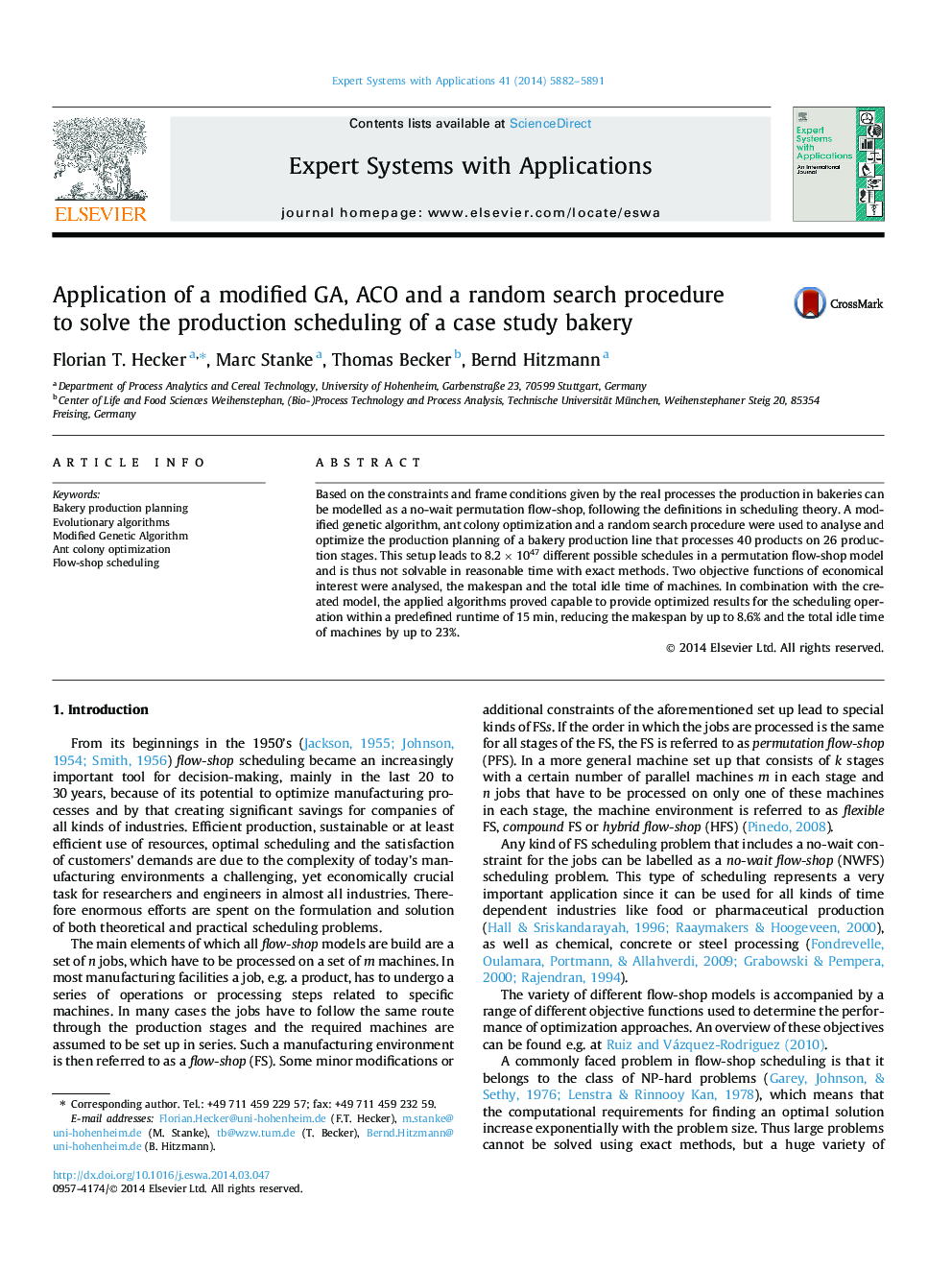| Article ID | Journal | Published Year | Pages | File Type |
|---|---|---|---|---|
| 382896 | Expert Systems with Applications | 2014 | 10 Pages |
•A bakery production line with 26 stages and 40 products was modelled using MATLAB®.•MGA, ACO and a random search procedure were used to solve the scheduling task.•All applied methods reached significant decreases of cost function values.•The makespan could be reduced by up to 8.6%.•The total idle time of machines could be reduced by up to 23.0%.
Based on the constraints and frame conditions given by the real processes the production in bakeries can be modelled as a no-wait permutation flow-shop, following the definitions in scheduling theory. A modified genetic algorithm, ant colony optimization and a random search procedure were used to analyse and optimize the production planning of a bakery production line that processes 40 products on 26 production stages. This setup leads to 8.2 × 1047 different possible schedules in a permutation flow-shop model and is thus not solvable in reasonable time with exact methods. Two objective functions of economical interest were analysed, the makespan and the total idle time of machines. In combination with the created model, the applied algorithms proved capable to provide optimized results for the scheduling operation within a predefined runtime of 15 min, reducing the makespan by up to 8.6% and the total idle time of machines by up to 23%.
